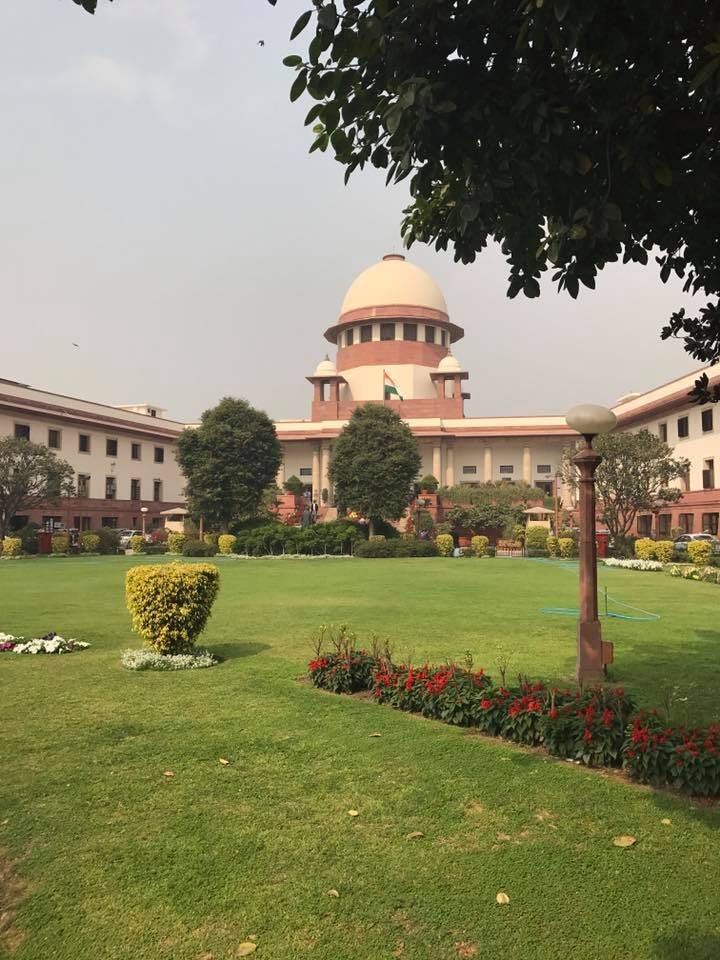Gujarat Government Order Granting Remission to Bilkis Bano Convicts a Nullity: Supreme Court
The 11 convicts directed to surrender to the prison within 2 weeks. Maharashtra Government competent to consider the case of remission as the trial took place there.
Supreme Court Quashes Orders of Pre-mature Release of Murder and Rape Convicts
In a landmark judgment that echoed through the halls of justice and beyond, a Bench of the Supreme Court of India, headed by of Justice BV Nagarathna, today (January 8, 2024) declared the Gujarat Government's order granting remission to the convicts in the Bilkis Bano case as "nullity," "without jurisdiction," and an "usurpation of the powers." The Apex Court's ruling underscored the role of Maharashtra Government as the competent authority to decide the matter, owing to the trial's relocation to the said State. The 11 murder and gangrape convicts have been directed to surrender to the prison within a fortnight. Although the Gujarat Government's order was not invalidated on substantive grounds, the Supreme Court pointedly criticized the impugned and contentious orders as "stereotype and cyclostyled," reflecting a lack of proper application of mind.
Philosophical Underpinnings and Legal Considerations
Justice Nagarathna invoked the words of Plato, emphasizing that punishment aims not at vengeance but at reformation, encapsulating the essence of the reformative theory of punishment. The Court balanced this philosophical approach with a stern emphasis on victims' rights, particularly considering the heinous nature of crimes against women. Delving into the legal aspects, the Court tackled the maintainability of the petitions, the competency of the Gujarat Government to pass remission orders, and whether those orders aligned with the law.
The Heart of the Matter: Competence and Remission
The Court, in no uncertain terms, held that the Government of Gujarat was not competent to pass the remission orders, given the offender was tried, convicted and sentenced in Maharashtra. This specific delineation of authority addresses the constitutional and procedural sanctity of the remission process. Justice Nagarathna highlighted the importance of the place of trial in determining the appropriate government for remission, emphasizing Parliament's intention and overriding any contrary judicial directions obtained by fraud or suppressing facts.
Implications and Observations
Justice Nagarathna didn't shy away from articulating the broader implications of this case, underscoring that the usurpation of power by the Gujarat Government, in this case, was a stark instance of abuse of power. The Court's decision meticulously dismantled the convicts' liberties obtained through the remission order, grounding its judgment firmly on the rule of law and equality principles.
Rule of Law versus Personal Liberty
In a delicate balance between rule of law and personal liberty, the Supreme Court held that the convicts' continued liberty under an invalid remission order is untenable. The right to liberty, as enshrined in Article 21 of the Indian Constitution, must align with the rule of law, and any breach thereof negates the essence of equality and justice. The Apex Court, acting as a beacon of upholding the rule of law, emphasized that its duty extends beyond merely correcting arbitrary orders - it is about retaining the public's trust and ensuring justice that encompasses both the convicts' and the victims' rights.
Summing Up and Path Forward
The Court's judgment underscores the importance of reformation over retribution in the context of punishment. It affirms the discretionary power of State Governments in granting remission, provided it is exercised within the legal framework, equity, and good conscience. For Bhai Balwant Singh Rajoana and other similarly placed individuals, including the “Bandhi Singhs”, the judgment clarifies the competent authority for remission, which in Bhai Rajoana's case is the UT Administration under the general direction of the Ministry of Home Affairs, given the location of both the offense and trial in Chandigarh. For other "Bandhi Singhs," the Punjab Government will be the deciding authority, albeit with necessary consultation with the Ministry of Home Affairs in cases involving the CBI investigation.
State Government or the UT Concerned is the Competent Authority
The Supreme Court's ruling shifts the theatre of action in the aforesaid cases to the Governments of Maharashtra and Punjab, as well as the UT Administration of Chandigarh, entrusting them with the task of deciding matters of remission as per the law now settled by the Apex Court. This judgment not only sets a precedent for future remission cases but also serves as a testament to the dynamic interplay between law, morality, and societal values, paving the way for a more judicious and empathetic approach to the complexities of criminal justice.
While no timeframe has been provided in law to decide the cases of remission, it is hoped that the concerned authorities shall do so without inordinate delay, in accordance with law.







